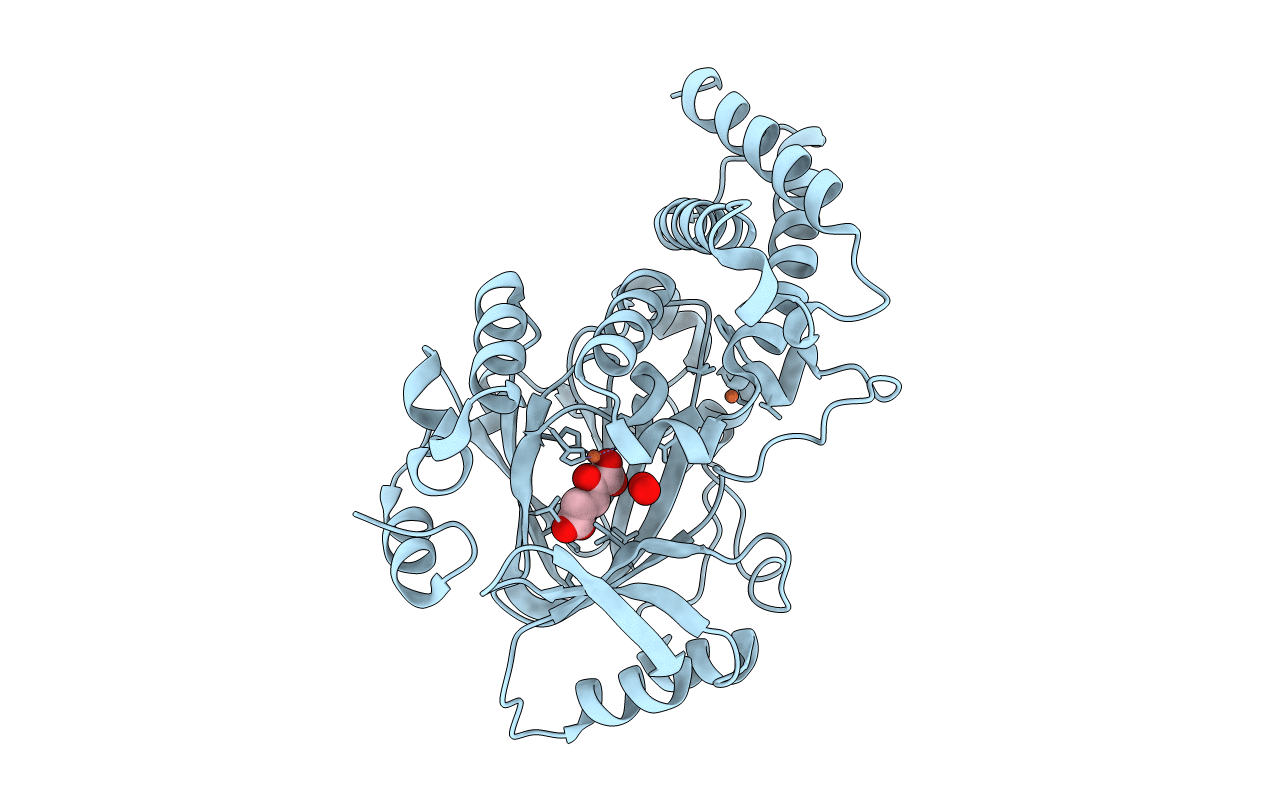
Deposition Date
2009-11-29
Release Date
2009-12-22
Last Version Date
2023-09-06
Entry Detail
PDB ID:
3KVA
Keywords:
Title:
Structure of KIAA1718 Jumonji domain in complex with alpha-ketoglutarate
Biological Source:
Source Organism(s):
Homo sapiens (Taxon ID: 9606)
Expression System(s):
Method Details:
Experimental Method:
Resolution:
2.79 Å
R-Value Free:
0.26
R-Value Work:
0.20
Space Group:
P 61 2 2


